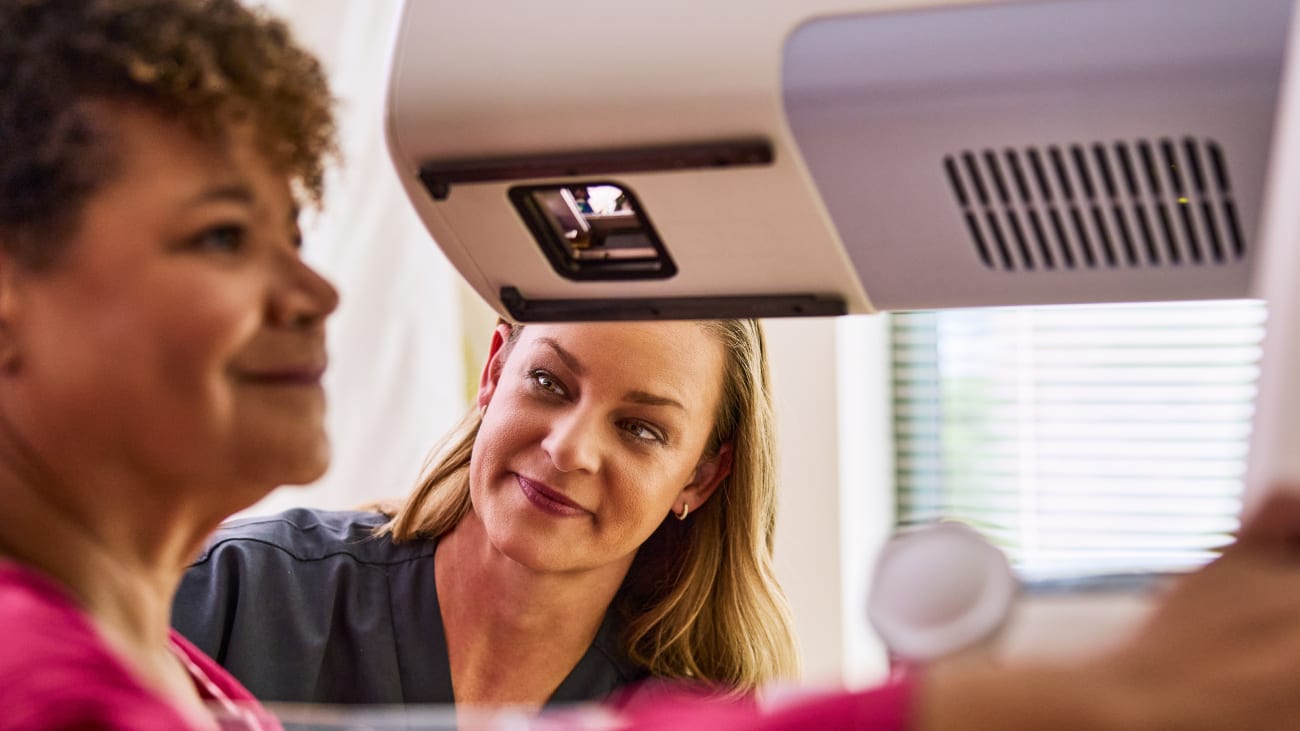

Women across the U.S. rely on regular mammograms for peace of mind. And no wonder: 1 in 8 will get breast cancer in their lifetime, and it’s the second most common cause of cancer death among women.
While annual screening detects tissue anomalies most of the time, it still fails to detect about 20% of all breast cancers in the U.S. — and nearly 40% in women with dense breast tissue.
WellSpan Health is working to close that gap. In fall 2024, we became the only health system in south central Pennsylvania to use an artificial intelligence (AI) solution to aid in detection of breast cancers.

Heidi Beilis, MD
“Thanks to the quicker, more thorough readings, we’ve revamped our process so we can talk with patients who need follow-up more quickly — sometimes before they even leave their appointment,” says Heidi Beilis, MD, DABR, FACR, vice president and chief medical officer of the Diagnostic Service Line at WellSpan Health.
AI catches difficult-to-detect breast cancers
In 2023, Dr. Beilis and her colleagues assessed an AI solution that has been approved by the U.S. Food and Drug Administration. During the two-month trial, the AI solution screened images before a radiologist reviewed them. It flagged any concerning cases to be escalated to a radiologist for close review and evaluation. If the radiologist confirmed the findings were concerning, patients would receive further diagnostic testing — often while they were still in the clinic.
The study revealed that the AI solution will allow radiologists to detect an additional 56 instances of breast cancer among the approximately 100,000 screening mammograms that the WellSpan Health system does each year. That would represent an increase of about 10%. Many of them are early-stage cancers that are often obscured by dense breast tissue or implants.
All imaging facilities at WellSpan Health’s legacy sites now have AI-assisted mammograms. New locations like WellSpan Evangelical Community Hospital will get the technology soon.
Same-day results and faster diagnosis
Before WellSpan Health adopted the AI system, radiologists would typically analyze mammograms in 1 to 2 days and call patients for additional testing if anything concerning was found. Now with the AI system integrated into the practice, radiologists can talk with patients before they leave the imaging center if their mammogram detected something abnormal.
How patients benefit from AI
- Most patients learn concerning results during their mammogram visit.
- Follow-up testing can be completed during the same visit or promptly scheduled.
The quick turnaround time is possible because images go straight to the cloud. In about 10 minutes, the AI system does a first-pass read and flags any concerning images. This allows our team to prioritize patients whose results require further investigation.
“We like it because it’s a tap on the shoulder, a second pair of eyes,” says Dr. Beilis.
Same-day results mean that patients can often undergo follow-up testing, such as an ultrasound or MRI, during the same visit. “We’re expediting care for the patients who need additional imaging, and in some cases a biopsy. That really reduces anxiety for the patient,” Dr. Beilis says.
Recently, the AI system identified an area of concern on the mammogram of a young woman with breast implants. Prior to leaving the clinic, she received immediate follow-up testing that revealed a very early-stage breast cancer.
“While that is news no one wants to get, the patient told us she appreciated finding out sooner rather than later,” Dr. Beilis says.
Caring for patients at every step
The AI system is just one piece of a broad effort at WellSpan Health to screen women for breast cancer and connect each patient with the testing and treatment they need.
We’re also developing a risk assessment tool to identify patients at a higher risk for breast cancer who are 25-40 years old. The tool will also help identify when a family member of someone with breast cancer should receive early screening.
“These tools are building blocks on the pathway to exceptional personalized care for patients and their families,” Dr. Beilis says.
